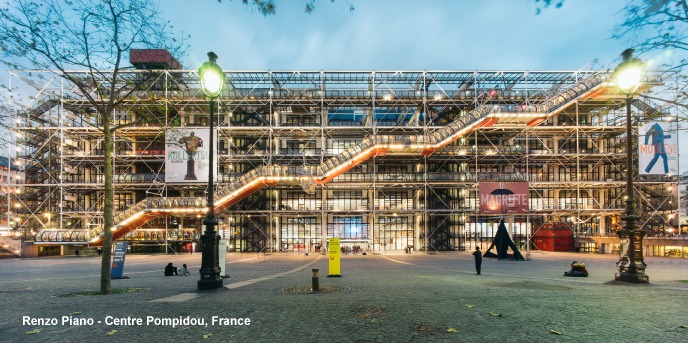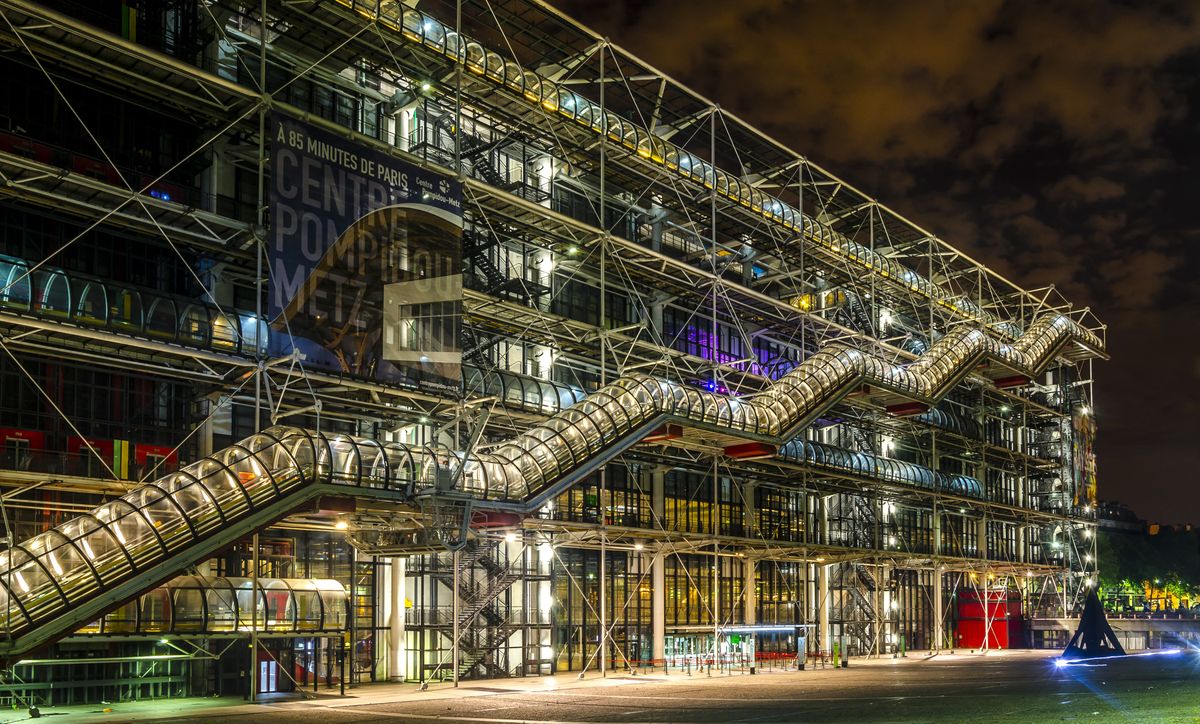Renzo Piano
Renzo Piano, winner of the 1998 Pritzker Prize and the 2002 UIA Gold Medal (among others), is one of the most prolific architects of our time, with an architectural repertoire that numbers over 50 landmark buildings spread right across the world. Today, he is perhaps best known for his iconic designs of the Georges Pompidou Centre (Paris, France) and The Shard (London, United Kingdom).
Born in 1937 to a family of builders in Genoa, Italy, Piano went on to found the Renzo Piano Building Workshop in 1980, which now has offices in Paris, Genoa and Berlin. He also established the Renzo Piano Foundation, a non-profit organisation dedicated to the promotion of the architectural profession through educational programs and activities.
But Piano, it seems, is far from slowing down: he recently volunteered his services to his hometown of Genoa, where he is designing a replacement for the Morandi Bridge, which tragically collapsed in August 2018.
The UIA Secretariat caught up with Mr. Piano just before the New Year to talk about the 1970 UIA-endorsed competition that marked a milestone in his early career: The Georges Pompidou Centre.

What attracted you to the competition for the Georges Pompidou Centre?
There was an idea in the competition brief that Richard [Rogers] and I found particularly interesting: the creation of a “house of culture”. André Malraux, culture minister from 1959-1969, came up with the idea of establishing a “house of culture” in every French city; a place where the different disciplines could intertwine, from music to literature to art. We liked that idea.
The other thing about this competition was the chairman of the jury, Jean Prouvé: my idol! Prouvé served as a great example to me, not just because of his talent for designing buildings, but also because of the ethics of his architecture, manifest mostly in his work with Abbé Pierre. He was an icon!
How did you feel when you won the competition?
Imagine: you’re 34-years-old, you’ve done a bit of work, but mostly small contracts, and somebody gives you the opportunity to build the Georges Pompidou Centre: How do you feel? Very surprised! We never expected to win – I mean, there were 681 entries!

What impact did this competition have on your career?
It had a huge impact: it gave us self-confidence and the courage to fight for our ideas. When we won that competition, we were projected into a new dimension. Up until then, we were small fry! Then suddenly we found ourselves working with big construction companies, and those kinds of companies are always telling you “impossible, Mr. Piano, impossible”! But our experience with the Georges Pompidou Centre taught us how to defend our ideas and not to let them fade away under the pressure of opposition. Though, of course, you have to be careful; you have to be sure the idea you’re defending is a good one! Once you’re sure of that, you have to be prepared to put all your energy into upholding your idea, day after day.
What advice would you give an architect entering a design competition?
Firstly, I would encourage any young architect to enter competitions. I myself got about 80% of my work through competitions. Even the new Palais de Justice, in Paris, was a competition. Nobody asks you to design buildings like that without a competition process first.
Secondly, forget tactics. One of the reasons why Richard and I won the competition for the Georges Pompidou Centre was because we never thought we could actually win, so we had zero strategy with regards to the jury. We were just focused on finding the right idea for that revolutionary period after May 68 (1). Don’t waste your time trying to conform to what you think the jury is looking for, or you’ll never find true inspiration. Just concentrate on digging deep inside yourself, brainstorming with your colleagues, and looking for the right idea. Then, only then, you might win!
(1) May 68 marked a volatile period of civil unrest in France, during which many political leaders feared civil war or revolution